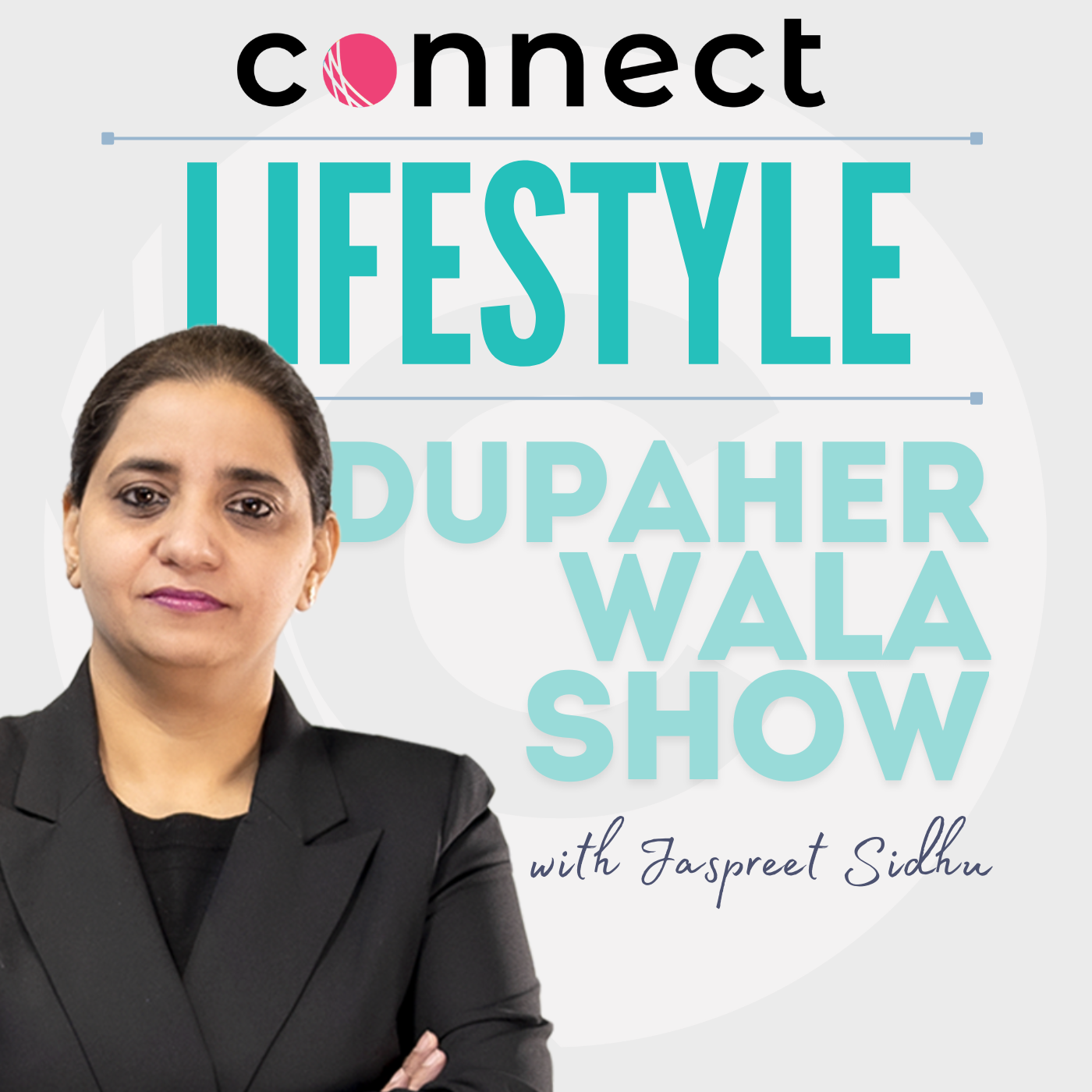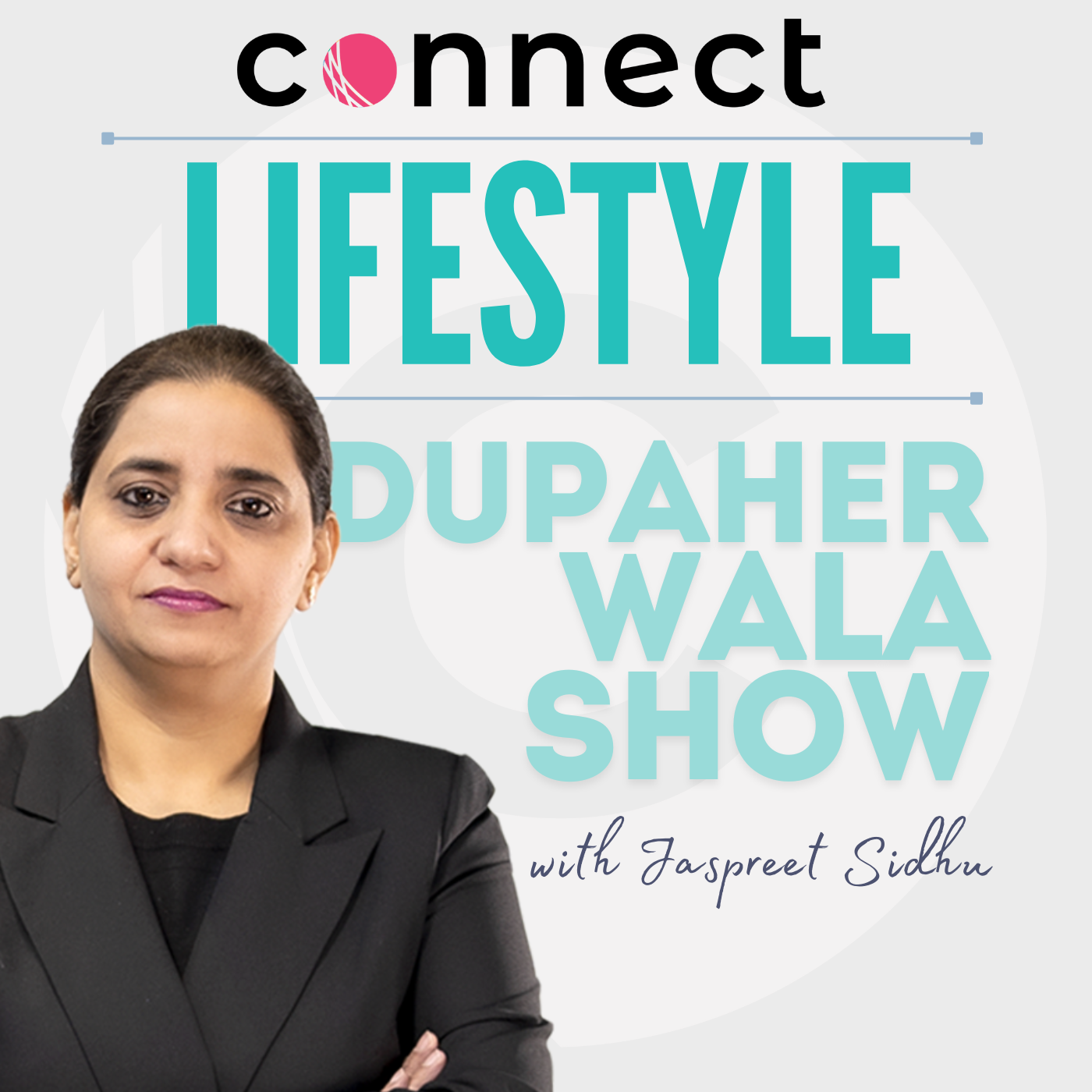Episode Transcript
[00:00:04] Speaker A: We all know parenting doesn't come with a manual parenting unintentionally, unknowingly damaged teenagers, that kind of a phase when we are adults, when we understand things.
[00:01:42] Speaker B: Can we forgive our parents?
You know, mental health, parenting resources.
So luxury. Yes, it is a luxury.
My mother didn't have it. Your mother didn't have it.
[00:02:08] Speaker A: Absolutely.
[00:02:09] Speaker B: Her mother didn't have it. Her mother didn't have it. So you and I are sitting actually, it's a privilege generations actually to make your human being opportunity, grandmother opportunity.
Look at how many generations it has taken you to be here on a radio and talk about something that's important to you.
[00:02:53] Speaker A: Absolutely, absolutely.
[00:02:54] Speaker B: You know, it just. You didn't like.
[00:02:59] Speaker A: Right.
[00:02:59] Speaker B: So you have to look at that like I'm sitting here talking about mental health. How many generations of people like Mehdi family Devici, you know, that actually progress, you know, you have to bypass parenting mental health counselor.
No, you know, I am a product of that. I'm a product of that upbringing. And. And of course, 100% conditioning, luxury, privilege, responsibility, you know, but there's lot good has happened that you're here and I'm here.
[00:03:54] Speaker A: Absolutely.
[00:03:55] Speaker B: You know, so it's. I feel like generations luxury, privileged.
It's big, you know, so if you. So this is where you have to start client.
You have to understand counseling.
You've had some sort of parenting.
Like you're a product. You're saying, you know, you're asking big questions. You're asking, you know, mera bacha, meera bacha merinalo.
I mean, like you're asking. This is big questions. And you're asking mera Rolki. This is why you've like, this is why to see counseling. Because.
And this is a big question, you know, and of course generations first question and second, you know, so we always have to remember.
[00:05:20] Speaker A: Absolutely.
[00:05:21] Speaker B: We are a product generation product. So as a result, we have more resources than any other generation had. And as a result, responsibility.
Of course, resources provide responsibility.
Responsibility, aware responsibility.
But it's all because, you know, it's a big moment.
[00:06:11] Speaker A: Absolutely.
[00:06:12] Speaker C: Right.
[00:06:21] Speaker B: You know, better.
That's a big question, you know, you know, the. Any responsibility generationally sadism better Banaya chisan cover.
You know, education basic taken care because Tanukui struggle karandisadi Lord.
[00:07:35] Speaker C: Right.
[00:07:49] Speaker B: Tantrum jagusakar the mechimi manage karna. You know, traumatized country 1987. Those are very scary moments.
So, you know, countries, if you think about it, right. So emotional conditioning it was to protect them because.
[00:08:42] Speaker C: Right.
[00:08:43] Speaker B: I Always think of it.
I didn't have a pressure of having a boy or a girl, whereas she did not. Even if society culture and because actually form of education. See ohi form of exposure. See Varna Sivi aju.
You know, like, it was a very stressful time, I'm sure.
But very traumatized environment. Right?
Exactly right. So you have to like the reason Pakistan to India.
Imagine like how can you forget that? You know, it's like it's so hard like to heal and fear to see grandchildren. Like think about the weight of that world. Like, I have not seen anything like that. But even listening to it is a scary part. Yes, it is.
[00:11:17] Speaker C: Right?
[00:11:17] Speaker B: Like suddenly family member suddenly out of. No, not.
[00:11:24] Speaker C: Right.
[00:11:25] Speaker B: So it's a luxury and it's a resource and it's a privilege and a serious resource responsibility for sure. You know, the purpose is as a human evolution evolve better as a maximum consciousness, maximum awareness depancho because ajavia.
The purpose is psyche level purposes.
Maximum level, maximum environment, conscious brain.
The purpose is basically of the demag. They manage conscious.
[00:12:38] Speaker C: Right?
Right.
[00:12:51] Speaker B: So we're on our way of a progress.
You know, I always say to sometime clients, right? Like, right. So that is the purpose of generations.
You know, when I look at my dad, when I look at my mom, my God.
[00:13:33] Speaker A: Right away forgive Karna.
[00:13:35] Speaker B: And it's not even about forgiveness, but to see accept Kar Deong understand Karde journey which is so different from yours.
[00:13:45] Speaker C: Right?
[00:14:06] Speaker B: Okay. This is life.
[00:14:07] Speaker A: Yes, it is.
[00:14:09] Speaker C: Right.
[00:14:09] Speaker B: So thought damaks thought that comparison progress start conditioning of tutti naviya environment, you know. So I think JCA lands then forgiveness.
[00:15:04] Speaker C: Right.
[00:15:09] Speaker B: And I'm sure one or the other way.
Of course.
[00:15:27] Speaker A: This is my biggest fear.
It's not that intentionally Kita being a mother.
[00:15:59] Speaker B: Relationship of the parent.
And I'm also working on it, you know, with my parents. Because it's very different conditioning.
And then we will accept our children. Right? And I always, you know, joke around at home.
Look, this is. This is. This was not right and probably right. Home coaching.
[00:16:34] Speaker A: Yes, yes.
[00:16:35] Speaker B: You know, and my only part there is to accept it and have compassion for myself. Not even mistakes.
Emotional resources.
The best I could do. The best I could do. And I get it.
[00:17:04] Speaker C: Right.
[00:17:13] Speaker B: Which is true.
[00:17:14] Speaker C: Right?
[00:17:24] Speaker B: So the thing is evolution, you know, I'm sure, you know, it's learning and even for me, right?
Judgment, perspective.
[00:17:46] Speaker C: Right?
[00:17:46] Speaker B: So parenting resources, resources equation.
[00:18:00] Speaker C: Right.
[00:18:05] Speaker B: Emotional resources.
[00:18:07] Speaker C: Right.
[00:18:08] Speaker B: For example, I'm also working through my own traumas.
[00:18:14] Speaker A: Okay, fine. Except Karlaya. Okay, fine.
Still to come to terms with that.
[00:18:32] Speaker B: Still human nature.
[00:18:43] Speaker A: Or parents.
[00:19:00] Speaker B: And it's very important. And it's such a good question. And I think including myself.
And it's so important.
It's a learning behavior.
You know, as a culture. It's a very hard responsibility.
You know, even like.
I mean.
And I'm sure the responsibility.
It's very hard because it's pain.
Actually opposite deconditioning lately.
And even though it was so hard, especially intimate relationship.
So it's very hard because responsibility.
It's a responsibility.
[00:20:42] Speaker C: Right.
[00:20:43] Speaker B: But to sit with yourself and say I because so they work because dropout rate drop out. Hojan there ferru salvadonchai Very hard.
For example.
[00:23:09] Speaker C: Yeah, yeah.
[00:23:11] Speaker B: And because.
[00:23:20] Speaker A: As a society.
[00:23:23] Speaker C: Right.
[00:23:23] Speaker B: So already. It's a wrong guilt.
Exactly. It's a wrong guilt. Guilt, dysfunction. So basically guilt.
[00:23:49] Speaker A: Obedient child.
[00:23:50] Speaker B: Obedient child.
Exactly.
Parents see history bad parent using Gardi of the counseling. Which unconscious parent, you know, because actually unconscious.
[00:24:24] Speaker C: Right.
[00:24:28] Speaker B: And thought the responsibility.
[00:24:34] Speaker C: Right.
[00:24:57] Speaker B: Both parents relationship parent. Just because, you know. So for example, Katogan.
[00:25:27] Speaker C: Right.
[00:25:28] Speaker B: So when she looked at his history, you know, psychologically of their father, she understood, you know, he came from a system in the adevicho job. Kardesi Hogyati Hoga Naita.
[00:25:47] Speaker C: Right.
[00:25:47] Speaker B: So then you have a compassion coping mechanism.
Survive Karandi protection the Manavia Peribas problem, which is protection the Lord.
Yes, yes.
So the purpose is actually as a relationship different show up compassionate father. I know, I see. I know. This is so de important. And thirdly frustrating. And actually understand, you know, because she wasn't responding with aggression and reactive.
Yes, reaction.
[00:27:01] Speaker A: Yes, right.
[00:27:14] Speaker B: Of course. Yeah.
Recently CEO Indra.
I don't know the last name.
Parent meeting Tinijasaki cost coffee meeting.
So she was also the reason.
And Meera is company contribution.
So.
[00:28:41] Speaker A: Parenting never happens in a vacuum.
[00:28:47] Speaker B: Exactly. And you know, single mother time spent.
And it's true.
It's true. She has to survive in the environment.
So in that case.
And that's the best she could do.
[00:29:19] Speaker C: Right.
[00:29:28] Speaker B: Do you see?
[00:29:29] Speaker A: Yes.
[00:29:29] Speaker B: There's a cost struggles.
So. And she said.
And I said, it's okay, you know, it's just gonna be acceptance.
Lots of acceptance for him. Yes. I did my life the way I knew how to do it.
[00:29:57] Speaker C: Right.
[00:29:58] Speaker B: And decision. It's okay. Because that's all Tusiyu's time, I think.
You know? And the more I got to know him, I realized step back, step back.
Oh my God. Shit. Already damaged Kartan.
[00:30:35] Speaker C: Right.
[00:30:35] Speaker B: But it's about accepting me. Because I was a new mom, you know, and I sari cheese menu physically had just a normal delivery lot of stuff. And, you know, you have like, I mean, hormonal imbalance, you know, health issues.
And to see maybe there is not much help around it.
[00:31:05] Speaker C: Right.
[00:31:38] Speaker B: But if you have a different narrative.
I did my best, you know, and financially provide Kita resources.
Very good.
Already achieved.
And they don't have like guilt over it. Absolutely. They understand human being.
[00:32:16] Speaker A: Thank you so much.
[00:32:17] Speaker B: Thank you so much.


